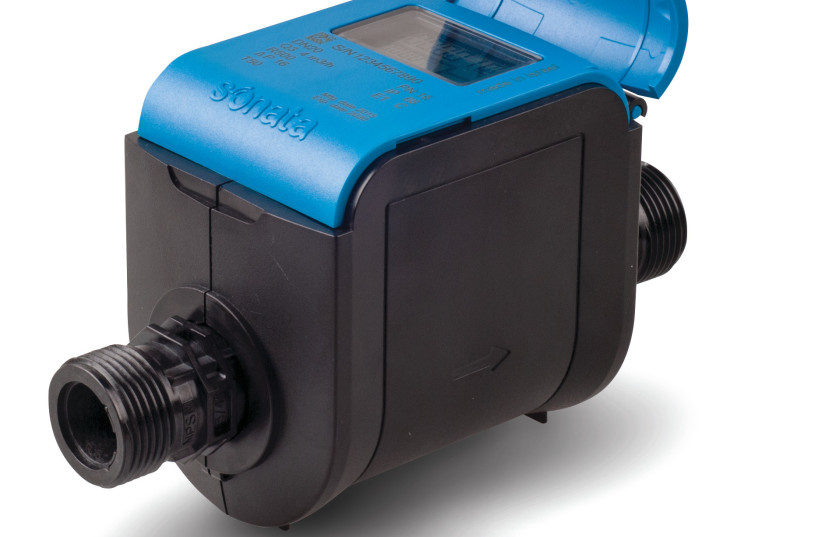Located on a small kibbutz in northern Israel, one company is making an immeasurable impact on the world, helping to resolve one of humanity’s largest crises. The Arad Group, based on Kibbutz Dalia, is that company.
One of the greatest challenges facing the world as populations continue to grow and industrialization expands is access to clean water. This is for hydration, agriculture and maintaining proper sanitation. It is for this reason that even adversarial states will sign treaties focusing on water. Water knows no politics.
The United Nations has prioritized water as one of its key climate points, raising the alarm that the world is set to face a mass water shortage by 2050. Particularly with agriculture increasing globally every year, water is in great demand. Roughly 30% of the global population will lack clean drinking water in the next decade. This will add to the nearly two billion people who already lack access to clean drinking water.
How is the Arad Group helping enable access to clean drinking water?
The Arad Group is at the forefront of solutions for this massive industry. The company, with approximately 600 employees worldwide, uses its water monitoring technology in some of the largest cities in the world, such as Mexico City, Paris, Rome, London, Barcelona, and New Delhi.
Its CEO, Gabi Yankovitz, discussed with The Jerusalem Report how the company has transformed over the more than a decade he has been at the helm; and how, based in a kibbutz of fewer than 1,000 people, the Arad Group is ensuring sufficient access to water globally.

The Arad Group was founded in Haifa prior to the establishment of the state as a production workshop for water meter parts. It moved its operations to Kibbutz Dalia and has not left since.
The core technology follows in this same suit: water metering. Water meters are familiar to those who have lived in an apartment, where they are billed monthly based on their usage. These meters are crucial to ensuring that water flow remains efficient throughout a city.
Yankovitz spoke about the history of water metering, remarking that “for many, the price of water was close to zero. Twenty years ago, a cubic meter of water cost 20 to 50 cents. Today, that number is $4 to $6. This significant increase in price is a major part of the crisis. There is a huge imbalance between demand and availability.”
Operating in more than 60 markets worldwide, the company has undergone a “rebirth,” as Yankovitz described it, transforming from a water meter parts company to a full-suite hi-tech company.
How this plays out is in its innovations – the most cutting edge in the world. The company’s roughly 120 engineers – there were only three 20 years ago– implement AMI technology (advanced metering infrastructure) that works to integrate the entire metering process. Whereas prior to these advancements workers from the water company would have to visit every meter in a city to bill customers, today it is running 24/7, giving the water authorities and the residents of cities instant access to their water usage.
While at first glance this may not seem to have such an impact, the savings and the ability to lead to preemptive measures are vast. For starters, prior to the crisis, fluctuations in water usage or false readings were a non-issue. It didn’t matter whether the meter read more or less because the cost of water to the consumer was next to nothing. Today, with ever-growing costs, having accurate measurements saves billions of dollars globally. Moreover, it gives the customer the ability to see if something is wrong and fix the problem before it gets too big.
The actual savings in terms of percentage of what is called non-revenue water, the imbalance, has gone from 30% to 2-3%, a massive saving.
The Arad Group is a public company on the Tel Aviv Stock Exchange, which has helped to spur its rapid growth due to a high influx of capital. Almost all of the funds it brought in went into research and development, as the now multi-billion dollar company continues to expand globally.
As the leading company in the water industry, it operates in 50 countries, though remaining true to its roots. In particular, Yankovitz praised the “magic” of Israel for seeing this impending crisis and adapting. Now most of the major cities in Israel operate AMI systems, ensuring efficient and safe flows of water. As a result, Israel ranks among the lowest cost per water in the world, much less per cubic meter than the Western world.
With subsidies in most continents, Arad has more than doubled in terms of size and revenue over the last six years. This includes production facilities abroad, which enables it to have near unlimited capacity to provide solutions to cities large and small.
Yankovitz stressed the importance of water to regional security and peace, pointing to the water treaty that Israel has with Jordan. He also mentioned the fact that the civil war that has ravaged Syria for more than a decade was the result of water disputes. The conflict in Syria has resulted in widespread destruction of water facilities across the country, which has up to 40% less drinking water than a decade ago.
Israel, for its part, has emerged as a leader in the region for ensuring efficient management and distribution of water – something Arad is a key part of.
Among the many innovations that Israel has devised in relation to water, from desalination to extracting water from the air, who would have thought that more innovative water metering could be at the center of it all? Thankfully, this is the case as the Arad Group continues to drive the future forward. ■
